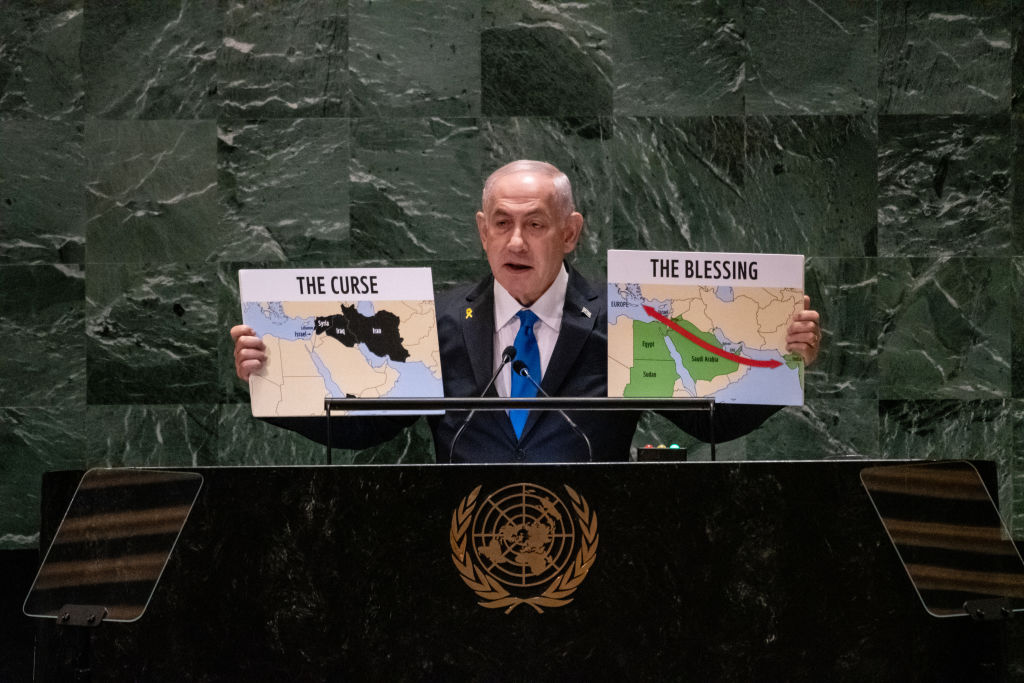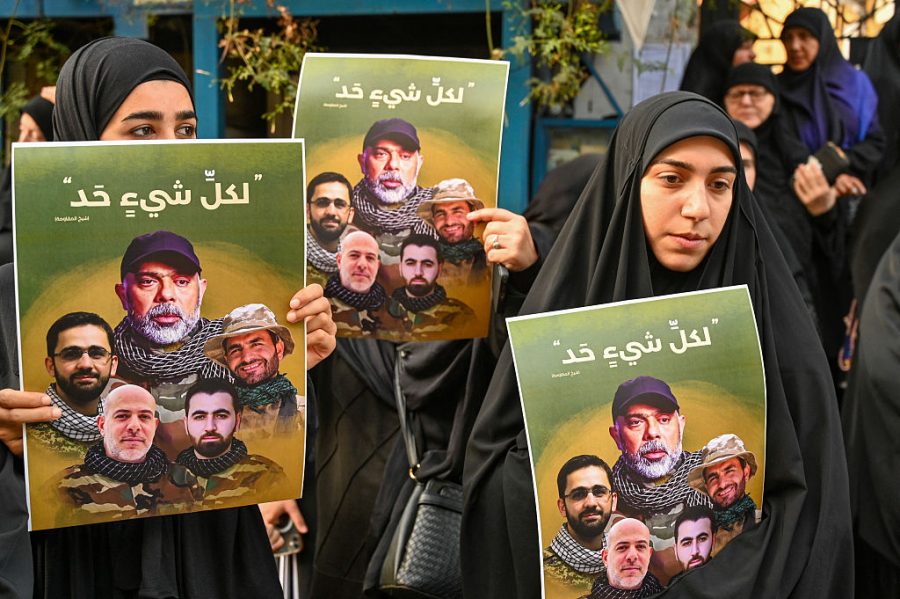It was a short, stern, matter-of-fact message from the Israeli Defense Forces — “Eliminated: Yahya Sinwar.” The man the Israeli military establishment was searching for throughout Gaza’s alleyways, underground tunnels and blasted-out buildings for more than a year, responsible for the worst terrorist attack on Israel since the founding of the state, is now dead and gone. Sinwar becomes the latest in a long line of Hamas leaders and commanders — Ahmed Yassin, Abdel Aziz Rantisi, Mohammed Deif and Ismail Haniyeh, to name a few — who have eventually met their fate at Israel’s hand.
Sinwar, however, often made the others look like conciliatory men. The sixty-something-year-old Palestinian, born in a Gaza refugee camp, lived and breathed Hamas for his entire adult life. He joined the movement at its founding in the late 1980s and headed up its internal security unit, where he was particularly ruthless in snuffing out potential Israeli collaborators within the Palestinian population. In one especially heinous incident, he ordered one Palestinian man to bury his brother alive for his transgressions. Sinwar was captured in 1988 and sent to an Israeli prison for about two decades, a formative period in his life and a stay that merely redoubled his commitment to the cause of destroying Israel. By the time he left prison in 2011 as part of a massive prisoner release deal (Israel let 1,000 Palestinian prisoners go free in exchange for captured Israeli soldier Gilad Shalit), Sinwar’s status within Hamas was on the upswing.
For Israelis across the political divide, Sinwar was their version of Osama bin Laden — an evil, soulless man who thought of nothing about killing innocents. The October 7, 2023 terrorist attack on Southern Israel was as coordinated and is was inhumane. From that day forward, Sinwar became enemy number one for Israel’s military and intelligence complex, above and beyond Hezbollah’s Hassan Nasrallah and Iran’s Ayatollah Ali Khamenei. While the year-long Israeli military campaign in Gaza may be geared toward two big objectives — destroying Hamas as a military and governing force and freeing the remaining Israeli hostages — taking Sinwar off the board was no doubt front-of-mind for every Israeli soldier, intelligence officer and counterterrorism operator deployed to Gaza. If last month’s assassination of Hassan Nasrallah was an intelligence coup for Israel, the killing of Yahya Sinwar was cold-stone justice.
The news couldn’t come at a better time for Israeli prime minister Benjamin Netanyahu and his government, who despite notching a series of military wins against Israel’s non-state adversaries are nonetheless stretched on two fronts simultaneously and still deeply unpopular in the eyes of the Israeli public. The question of what comes next after Hezbollah and Hamas’s demise, or even whether that demise is even possible, has been consistently swept under the rug for political expediency. Israel’s wars in Gaza and Lebanon are driven by short-termism, or rather a collection of tactics in search of a sustainable strategy. Sometimes those tactics look mighty familiar and occur in the same places; two weeks ago, Israeli troops re-invaded the Jabalia refugee camp for the third time in a year, an operation that remains ongoing. Israel’s task is no easier in southern Lebanon, where Israeli ground troops are combing through steep, mountainous terrain to eliminate Hezbollah’s military infrastructure. Sinwar’s death won’t change any of that.
Some will argue that removing Sinwar from the scene will make the conclusion of hostage release talks between Israel and Hamas easier to achieve. The reasoning behind this assumption is clear enough. Sinwar took a far harder line in the talks and was known to toughen his demands as the negotiations gained steam. As President Biden said today, “Yahya Sinwar was an insurmountable obstacle” to achieving an agreement that would release the remaining hostages, establish a ceasefire, result in an Israeli troop withdrawal and provide the time required to bring a new political reality to Gaza.
The only problem: Sinwar wasn’t the only obstacle to a deal. The other one, which the Biden administration continues to skate around, is Benjamin Netanyahu, who has prioritized his political survival over everything else. There have been numerous opportunities for Netanyahu to sign on the dotted line, yet he has chosen the opposite course of action by limiting the mandate of his own negotiators, catering to the ultra-nationalist ministers keeping his coalition government afloat and tabling additional demands — like a perpetual Israeli troop presence along the Philadelphi Corridor — that throw a wrench into the negotiating machine. Even Netanyahu’s own defense minister, Yoav Gallant, has acknowledged this. Indeed earlier this week, Israeli defense officials claimed Netanyahu’s government has given up on the hostages and is now discussing outright annexation of parts of Gaza.
Could Netanyahu’s calculations change now that Sinwar is dead? Could he use Sinwar’s demise as a way to declare victory and pull out of Gaza before the IDF is put into the position of occupying the coastal territory for the first time since 2005? It’s far too soon to answer these questions, but a gambler would bet against it. Netanyahu, after all, is still wedded to the same ultra-nationalist ministers post-Sinwar as he was when the Palestinian terrorist was still alive. Those ministers will likely oppose any Israeli withdrawal before more damage is done — and even then, Netanyahu might not have the flexibility to extricate himself.
It’s also unlikely the bottom-line positions of both parties will change. Israel is still seeking Hamas’s absolute surrender and disarmament, and Sinwar’s death will only reaffirm in the Israeli government’s mind that those objectives can be achieved. Hamas is still invested in maintaining a semblance of control or influence in Gaza, which the Israelis are strongly opposed to. Unless those two objectives are somehow reconciled, the probability of the war ending sooner rather than later is quite low.
I hope I’m wrong.


























Leave a Reply